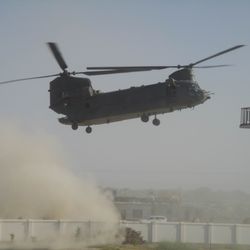Share

Behind The Lines with Arthur Snell
Behind The Lines Ep 6 - Still Beautiful? The Cynical World of Globalised Football
We’re living in an age of the self-confident autocrat: China is rising, President Erdogan coasted to a managed re-election and in the Gulf, the Arab monarchies are riding high on oil prices boosted by Putin’s war in Ukraine. And what do the autocrats do with their money? They use it to buy influence. And one of the ways that they can do this is through football, the most popular sport on the planet.
In 2003 Roman Abramovich, the now-sanctioned Russian billionaire, bought Chelsea football club, setting into a motion a process of flooding the English game with colossal amounts of money. As we know now, and as many suspected for years, Abramovitrch owed his wealth directly to President Putin - so the money that infused English football from this point was effectively looted from the coffers of the Russian state. Russia would not be alone in seeking to use football to burnish its image - in 2008 Abu Dhabi bought Manchester City and Qatar bought Paris Saint Germain three years later. In both cases these small Gulf emirates successfully used football to increase their global reputation and influence. This process appears to have continued, with Qatar’s hosting of the World Cup and the purchase by Saudi Arabia’s public investment fund of Newcastle United as well as the establishment of a new Saudi Pro League, drawing in top players from all over the world. As part of the Newcastle deal, the Premier League appeared to have been given assurances that the Saudi Public Inverstment Fund was separate to the Saudi state, which is patently untrue. What this appears to show is that the English football authorities will believe what they want if it brings in the cash, with little thought for the consequences.
To discuss the geopolitical and sporting implications of these changes I was honoured to be joined by Miguel Delaney, chief football writer at the Independent, who has been researching and writing about the geopolitics of football for several years.
You find Miguel on Twitter @MiguelDelaney and at the Independent https://www.independent.co.uk/author/miguel-delaney
Thank you for listening to this podcast - please subscribe if you haven’t already and give us a positive review if you enjoyed it.
Vyner Street Productions
Check out our Bookshop.org affiliate site behindthelines and please sign up for my substack at arthursnell.substack.com and/or follow me on Bluesky
@snellarthur.bsky.social. You can sometimes find me on other podcasts - most often Disorder which I am involved with in partnership with RUSI, the Royal United Services Institute, the world's oldest think tank.
More episodes
View all episodes

War in the Middle East and its wider impacts
37:53|I spoke to Chris Coghlan, MP for Dorking and Horley and former diplomat and soldier about the unfolding crisis in the Middle East, the implications for European security and the wider political ramifications.
Sten Rynning on the Past and the Future of NATO
48:43|At different engagements throughout the month, NATO allies will meet in Brussels and the Hague to discuss Ukraine and defense spending – with Trump’s team putting pressure on the Europeans to up their spending to 5% of GDP. But with the Americans wavering on the alliance as a whole, and these unrealistic spending targets: Can NATO survive?To find out, Arthur Snell speaks with Sten Rynning, professor and director of the Danish Institute for Advanced Study, University of Southern Denmark, and author of ‘NATO: From Cold War to Ukraine, a History of the World’s Most Powerful Alliance’. The duo discuss the origins and evolution of NATO, the significance of Article 5, NATO’s complex relationship with France, and the challenges faced during the Afghanistan mission. Plus: the contentious issue of NATO's eastward expansion in the wake of the fall of the Soviet Union, and the Alliance's role in maintaining Order in the Post-War era. And as they conclude the discussion, they explore the future of European security architecture, the importance of America's role in NATO, and – to Order the Disorder – the need for a cohesive European defense strategy.Producer: George McDonaghSubscribe to our Substack - https://natoandtheged.substack.com/Disorder on YouTube - https://www.youtube.com/@DisorderShow Show Notes Links:Get Sten Rynning’s book, NATO: From Cold War to Ukraine, a History of the World’s Most Powerful Alliance - https://www.londonreviewbookshop.co.uk/stock/nato-from-cold-war-to-ukraine-a-history-of-the-world-s-most-powerful-alliance-sten-rynning Watch The Paradox of the Anti-Semitic Boulder attack - https://www.youtube.com/watch?v=R7zAO_5CtfE
23. Mike Martin MP on the Strategic Defence Review
35:11||Season 5, Ep. 23I spoke to Dr Mike Martin, MP for Tunbridge Wells and former soldier about the Strategic Defence Review.
22. Iran and the US: is a new nuclear deal in sight?
38:11||Season 4, Ep. 22I spoke to Iran expert Charlie Gammell in the light of the recent developments in the Iran nuclear negotiations.
21. Starvation in Gaza, is the world finally responding?
54:11||Season 4, Ep. 21As the humanitarian situation in Gaza descends to unimaginable levels, and the war of words between Benjamin Netanyahu and the West escalates, I spoke to Michael Stephens of RAND Europe and RUSI about the situation.
20. Murder in Helmand
46:19||Season 4, Ep. 20On this episode I discuss recent allegations of war crimes committed by UK Special Forces in Afghanistan. These featured in a recent BBC Panorama episode which can be found here: https://www.bbc.co.uk/iplayer/episode/m001ykkf/panorama-special-forces-i-saw-war-crimesMy guest on this episode is Professor Matthew Ford, a military expert based at the Swedish Defence University. We covered these allegations, wider questions of counter-insurgency and what it means for modern warfare as the western alliance faces existential challenges.You can find Matthew Ford here https://bsky.app/profile/warmatters.bsky.socialYou can find me here https://arthursnell.substack.comYou can find our new Bookshop.org affiliate shop here: https://uk.bookshop.org/shop/behindthelines
19. Yemen, the UK, the US and the transatlantic alliance
01:03:28||Season 4, Ep. 19On this episode I speak to Iona Craig, the veteran Yemen expert and journalist about recent events, including the UK's decision to join the US in carrying out airstrikes against the Houthis.Iona mentioned an earlier episode of this podcast with Laura Cretney, which is worth listening to if you are interested in Yemen. You can find it here https://podcasts.apple.com/gb/podcast/behind-the-lines-with-arthur-snell/id1704344656?i=1000643933101Please sign up for my substack at arthursnell.substack.com and follow me on Bluesky@snellarthur.bsky.social. You can sometimes find me on other podcasts - most often Disorder which I am involved with in partnership with RUSI, the Royal United Services Institute, the world's oldest think tank.
18. Ukraine and America: the great betrayal
58:10||Season 4, Ep. 18I spoke to Romeo Kokriatski, presenter of the Ukraine without the Hype podcast about recent events in his country, including the Trump betrayal.We mentioned Operation Sky Shield, a plan which you can read about here.
17. The Geopolitics of Climate: how Tuvalu is thinking about possible extinction
45:22||Season 4, Ep. 17What does the climate crisis mean for sovereignty in a world where certain countries face existential risk? I spoke to Taukiei Kitara, a native of Tuvalu, about the case of low-lying Pacific Islands, including his native Tuvalu.